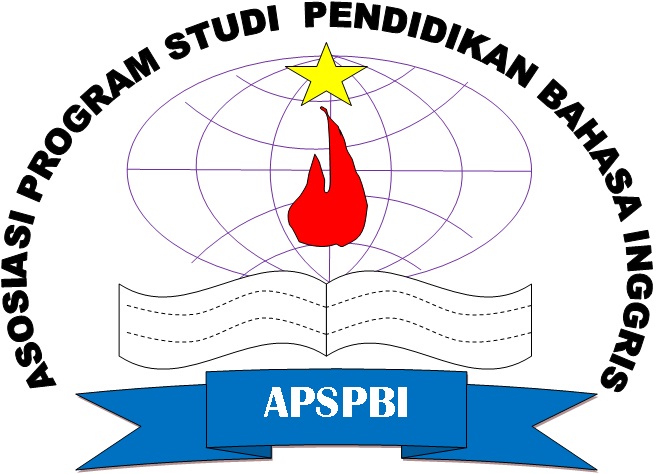“Writing is challenging”: factors contributing to undergraduate students’ difficulties in writing English essays
DOI:
https://doi.org/10.28918/erudita.v2i1.5441Keywords:
Essay writing, Linguistic factors, Psychological factors, Students' difficultiesAbstract
Essay writing is one of writing skills that must be mastered by students especially college ones because they often get an assignment to write an essay. However, many students find it difficult when they are assigned to compose an essay. This research aims to investigate the difficulties in English essay writing and its factors. Framed in a narrative inquiry, 33 students and one lecturer volunteered to participate. Data were collected through open-ended questionnaires and semi-structured interviews. The data were analyzed using thematic analysis by Braun and Clarke. Study findings reveal that students find difficulties in grammar, vocabulary, cohesion and coherence, and developing topic ideas. Factors that contribute to students’ difficulties are both internal factors (psychological factors and linguistic factors) and external factors (peer support and advisor support). Several ways that students do to overcome the difficulties in writing essays were motivating themselves, studying and reading a lot, and writing practice. In addition, they were also asked their friends and their lecturer to get more explanation. To make a good essay, students need to improve their grammar and punctuation ability. They, likewise, need to increase their logical thinking ability to create coherent and cohesive essays.
References
Al Khazraji, A. (2019). Analysis of discourse markers in essay writing ESL classroom. International Journal of Instruction, 12(2), 559-572. https://doi.org/10.29333/iji.2019.12235a
Ary, D., Jacobs, L. C., Sorensen, C. K., & Walker, D. (2010). Introduction to research in education. Cengage Learning.
Bakar, R. (2014). The effect of learning motivation on student’s productive competencies in vocational high school, West Sumatra. International Journal of Asian Social Science, 4(6), 722-732. http://repository.unp.ac.id/id/eprint/2518
Braun, V., & Clarke, V. (2006). Using thematic analysis in psychology. Qualitative Research in Psychology, 3(2), 77-101. https://doi.org/10.1191/1478088706qp063oa
Brown, H. D. (2007). Principles of language learning and teaching (5th ed.). Pearson Education, Inc.
Budjalemba, A. S., & Listiyani (2020). Factors affecting student’s difficulties in academic writing class: Student’s perceptions. UC Journal: ELT, Linguistics and Literature Journal, 1(2), 135-139. https://doi.org/10.24071/uc.v1i2.2966
Burhanuddin, A. (2020). Error analysis of English sentences written by Indonesian college students. Lingua Idea, 11(1), 30-43. https://doi.org/10.20884/1.jli.2020.11.1.2154
Byrd, P. (2003). Teaching grammar: The essentials of language teaching. NCLRC: The National Capital Language Resource Center, Washington, DC.
Estell, D. B., & Perdue, N. H. (2013). Social support and behavioral and affective school engagement: The effects of peers, parents, and teachers. Psychology in the School, 50(4), 325-339. https://doi.org/10.1002/pits.21681
Fitzgerald, M. (1994). Why writes essays? Journal of Geography in Higher Education, 18(3), 379-384. http://dx.doi.org/10.1080/03098269408709282
Geyte, E. V. (2013). Writing: Learn to write better academic essay. Harper Collins Publisher.
Goh, Y. S. (2007). Learning grammar in Chinese pronunciation. Electronic Journal of Foreign Language Teaching, 6(1), 100-107.
Hamalik, O. (2014). Kurikulum dan pembelajaran [Curriculum and learning]. Bumi Aksara.
Khaerunnisa, N. (2019). English language education department student’s challenges in writing essay [Master’s thesis, Universitas Muhammadiyah Yogyakarta]. UMY Research Repository. http://repository.umy.ac.id/handle/123456789/30090
Klug, J., Bruder, S., Kelava, A., Spiel, C., & Schmitz, B. (2013). Diagnostic competence of teachers: A process model that accounts for diagnosing learning behavior tested by means of a case scenario. Teaching and Teacher Education, 30(1), 38-46. http://dx.doi.org/10.1016/j.tate.2012.10.004
Ma, L. P. F. (2021). Writing in English as an additional language: Challenges encountered by doctoral students. Higher Education Research & Development, 40(6), 1176-1190. https://doi.org/10.1080/07294360.2020.1809354
Mickan, P. (2001). Beyond grammar: Text as unit of analysis. In J. E. James (Ed.). Grammar in the language classroom (pp. 220-227). SEAMEO Regional Language Center.
Morgan, K. (2016, June 25). Problems that students encounter with essay writing. The Classroom. https://www.theclassroom.com/problems-students-encounter-essay-writing-2070.html
Norris, C. (2016). Academic writing in English. European Science Editing.
Palani, K. K. (2012). Promoting reading habits and creating literate society. Journal of Arts, Science & Commerce, 3(2), 90-94. https://didarnews.ir/files/fa/news/1398/8/21/129559_545.pdf
Pintrinch, P. R., Schunk, D. H., & Meece, J. L. (2008). Motivation in education: Theory, research, and applications. Pearson Education, Inc.
Popping, R. (2015). Analyzing open-ended questions by means of text analysis procedures. Bulletin of Sociological Methodology/Bulletin de Methadologie Sociologique, 128(1), 23-29. https://doi.org/10.1177%2F0759106315597389
Rahmany, R., Zarei, A. A., & Gilak, S. (2013). The effect of extensive reading on Iranian EFL learners’ motivation for speaking. Journal of Language Teaching and Research, 4(6), 1238-1246. http://dx.doi.org/10.4303/jltr.4.6.12381246
Rokhuma, C. M., Febriani, T. N., & Rizkiyani, I. (2021). Capturing students’ voice on the use of Moodle in online English language teaching. Proceeding of the 1st International Conference on Islam and Education (ICONIE) (pp. 759-770). https://proceeding.iainpekalongan.ac.id/index.php/iconie/article/view/222
Saddler, B., Moran, S., Graham, S., & Harris, K. R. (2004). Preventing writing difficulties: The effects of planning strategy instruction on the writing performance of struggling writers. Exceptionality, 12(1), 3-17. https://doi.org/10.1207/s15327035ex1201_2
Sugiyono. (2016). Metode penelitian kuantitatif, kualitatif, dan R&D [Qualitative, quantitative, and R&D research methods]. Alfabeta.
Susanto, A. (2015). Teori pembelajaran & pembelajaran di sekolah dasar [Theories of teaching and learning in primary schools]. Kencana Penamedia Group.
Viera, R. T. (2017). Vocabulary knowledge in the production of written texts: A case study on EFL language learners. Revista Technologica ESPOL (RTE), 30(3), 89-105. http://200.10.150.204/index.php/tecnologica/article/view/628
Yule, G. (2008). The study of language. Cambridge University Press.
Downloads
Published
How to Cite
Issue
Section
License
Copyright (c) 2022 Tri Nurilah Febriani

This work is licensed under a Creative Commons Attribution-ShareAlike 4.0 International License.















